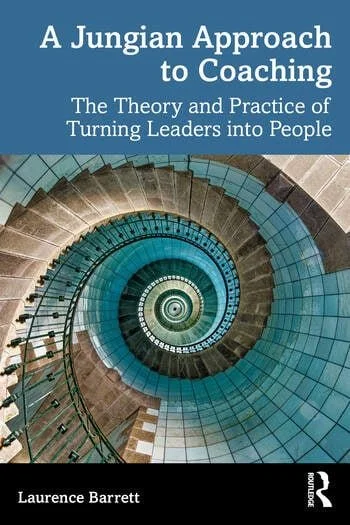A Jungian Approach to Coaching
I don’t really do book reviews here but for what seem like unconscious reasons I am. In my work coaching business leaders who are studying, it’s helpful to stay on top of the academic material being pumped into them. Consequently, I can often be found with my head in some relatively obscure books. This is mostly a frustrating experience that makes my brain hurt, as I find the writing often dense and sometimes impenetrable. However, occasionally something resonates and appears very useful, and so it was with Laurence Barrett’s A Jungian Approach to Coaching.
The subtitle, the theory and practice of turning leaders into people, should have given me a clue that this is not merely acres of academic analysis. Divided into three sections (foundation, relationship and practice), Barrett skilfully brings to life the philosophy of Carl Jung through the lens of a modern executive coaching practice. I learned one of those lessons I’ve occasionally been given over my twenty-five years practice, namely a sense of familiarity with the work without knowing of its existence. This could be regarded as a typically Jungian concept. As it turns out, good old Carl’s therapeutic philosophy is embedded in my world view, and also obviously in my coaching model, and in a typically unconscious way. Who knew? (Well I do now, or do I?)
Before we get to the book itself, a word on both Carl Jung and Laurence Barrett. Jung was a Swiss psychologist and psychoanalyst who followed Freud and then departed from him, prioritising more the notion of the collective unconscious over Freud’s individual lens. Laurence Barrett is a very experienced coach with an impressive academic pedigree in the field of organisational dynamics and Jungian interpretation of individual and collective development.
The first section of the book - Foundation - seeks to explain the key components of Jungian thinking and then show how, through the author’s anecdotes, how they can be applied in coaching. We get to explore the deep unconscious, symbols, individuation, narrative, shadow and archetypes. It is all unknown to me and yet at the same time deeply familiar. By unknown, I think I mean that I was unaware that Jung (who I had heard of) was the architect of so many of the individual concepts that float round my belief system. While reading this first section I was resonating on a more personal level, both within my own sense of self and also how I experience the world around me.
It was during the second section – Relationship – that my attention was drawn more to my professional coaching practice. As well as accessing transference and counter-transference (typical tropes of any coaching book worth its salt) in a more helpful way, Barrett spends time with three concepts that seem personally relevant and timely. I’m not sure whether this is simply excellent writing up of universal themes or if serendipity had me exploring this book at this time. The three concepts are:
Liminality. I had studied this as part of my theatre degree and am actively using it more and more in my coaching. Barrett was able to add the sacred and symbolic to my own understanding of the concept.
Group coaching. I’ve recently been asked to contribute some writing on this topic (distinct from team coaching) and found the developmental paradox and the whole exploration most helpful. I will be referencing this section in my own discourse.
Ecopsychology. The therapeutic benefits – not to mention the ecological necessity – of housing developmental work within the context of the world in which we exist (and are inextricably part of whether we like it or not) offered me a profound kick up the arse about where I might place more professional attention (thanks Laurence)
The third section – Practice – offers the most practical advice for coaches. Barrett first addresses the recent Covid-accelerated evolution toward online coaching in a very helpful way. After some insight into the boundaries between coaching an therapy, the book finishedswith three foundational pillars for a Jungian coaching practice:
The Self as Instrument
A Symbolic Attitude
Mentalisation
These are so precisely written that any attempt by me to summarise them would risk simply repeating Barrett’s well-crafted content but in a much poorer way.
Underpinning the whole book for me are two resonant ‘truths’ that it might be worth repeating here. Firstly that the unconscious is called the unconscious for a reason; it is an evolving thing that constantly eludes us. Our best hope is for a more intimate relationship with it, and this should always be part of developmental coaching. Secondly, most psychology over-identifies with the self/ego/psyche/internal world of the individual and, by doing so, risks separating us from the reality of being part of, belonging to, and being connected to, a dynamic evolving external environment. My coaching practice needs to pay attention to that more intentionally and propositionally.
All in all, I found this book to be relevant, resonant and very topical. It’s not a page-turner, and there is the obligatory sprinkling of words I have never heard of, but it has heart to match its undoubted intellectual prowess. The content is well structured and given colour by frequent use of very helpful case studies. I’ve just discovered it won the Henley Business School 'Coaching Book of the Year' 2023 Award, and I can see why.

